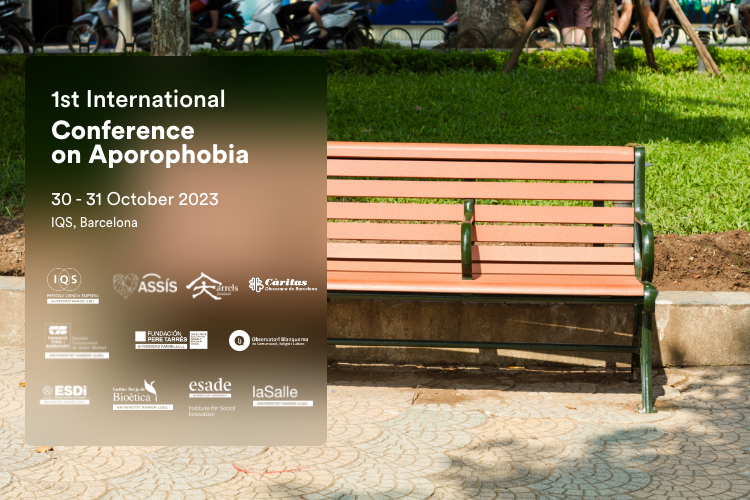The event will be held on 30 and 31 October and will feature a keynote speech by well-known professor and philosopher Adela Cortina, who coined the term aporophobia, meaning “rejection of the poor.”

- The event will be held on 30 and 31 October and will feature a keynote speech by well-known professor and philosopher Adela Cortina, who coined the term aporophobia, meaning "rejection of the poor."
- The 1st International Conference of Aporophobia will feature an extensive lecture programme, nine parallel sessions, and six workshops, all with the aim of reflecting on aporophobia in the real world and finding solutions to fight against it.
Aporophobia is a neologism that defines a reality that had not been named until recently: rejection. Aversion, fear, and contempt for the poor. This relatively recent concept – it entered the SAR dictionary in Spain in 2017 – has caused a great impact in just a short time both academically and in the human and social sciences. But above all, aporophobia is a real problem that affects the dignity of the most vulnerable people in society and makes their lives more difficult. In addition, it stigmatizes poverty, affects society's support for social policies, and aggravates other types of discrimination such as racial or gender discrimination.
Aporophobia is a widespread phenomenon in Western society and more present than it may seem. In Spain alone there are 12.3 million people living in a situation of poverty and social exclusion (more than 1.1 million in Catalonia), according to data from the annual report The State of Poverty in the Autonomous Communities, drafted by the Network to Fight Poverty and Social Exclusion (EAPN-ES), which was published this past April.
In response to this situation, and with the aim of analysing the phenomenon and seeking solutions, on 30 and 31 October the IQS university centre in Barcelona will host the 1st International Conference of Aporophobia. In addition to IQS, the event is relying to collaboration from the Pere Tarrés-URL Foundation, Cáritas, the Assís Foundation, the Arrels Foundation, the Borja Institute of Bioethics-URL, the Vidal i Barraquer Foundation-URL, ESADE-URL, ESDI-URL, the Blanquerna-URL Observatory, and La Salle-URL. Attendance is free, although spots are limited and registration is required via the form on the website.
The conference will feature attendance by the philosopher and professor Adela Cortina, a leading international figure in aporophobia, a term she coined in 1995 and which definitively saw the light with the publication of her 2017 book Aporophobia. The rejection of the poor: a challenge for democratic society. Cortina will present the inaugural lecture of the first edition of this conference, entitled "Aporophobia: a transformative word for reality" (30 October at 9:30 am).
This inaugural event is being launched with a twofold objective: to reflect on aporophobia in the real world and to find solutions to fight against it. To this end, researchers from all over the world have been invited to explore various issues related to aporophobia from different perspectives and fields of study. During the two days the event will take place, experts from different areas (philosophy, economics, sociology, political science, business, health, education, history, criminology, and more) will pass through the IQS campus to present and share knowledge, opinions, and points of view on the subject.
The schedule for this first edition is structured around a series of lectures in addition to nine parallel sessions with the following titles (five in English and four in Spanish): Conceptual foundations of aporophobia; The meaning and measure of poverty; Conceptual foundations of aporophobia; Aporophobia and Higher Education; Aporophobia: Barcelona; Empirical evidence on Poverty and aporophobia I and II; Aporophobia and public policies; and Aporophobia in the technological society. Six workshops will also be held, one of which will bring together the Arrels Foundation, the Assís Foundation, and Cáritas.
The conference will conclude with the reading of a "manifesto against aporophobia" prepared by the main institutions holding this conference.










